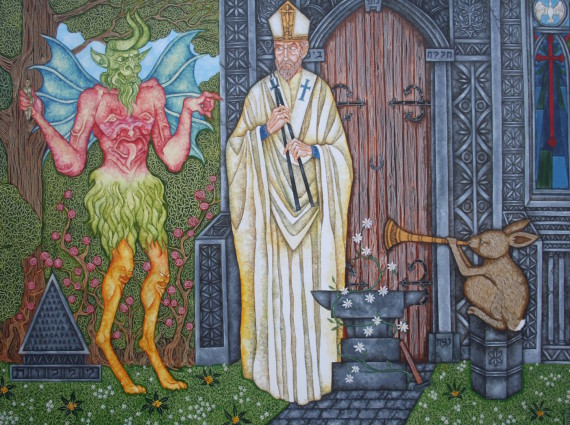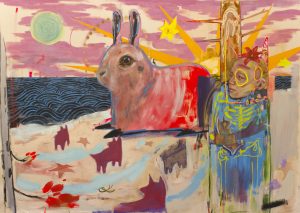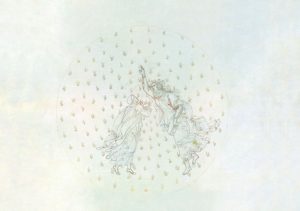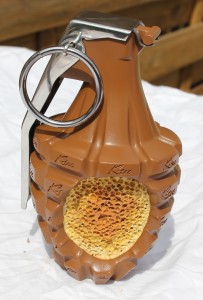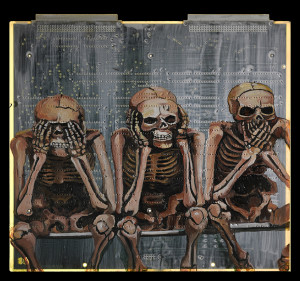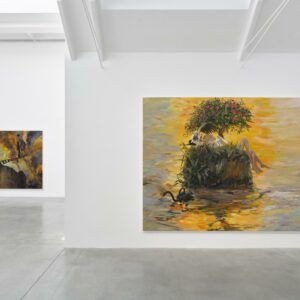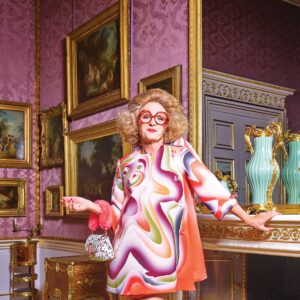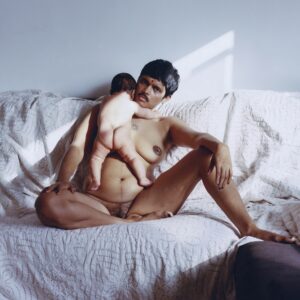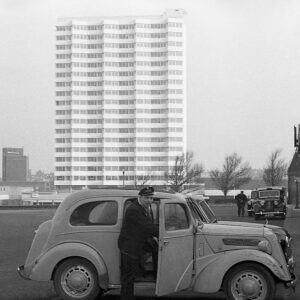Britannic Myths, the Shoreditch CNB gallery’s second solo show by the acclaimed British artist Joe Machine, opened last week.
Joe Machine was raised in the Cockney Riviera of North Kent and had a turbulent childhood filled with memories of violence and street fighting. This background resulted into behavioural problems and a life consisting of several arrests and an extended criminal record. For Joe, this criminal past found a way of becoming a painterly expression on whichever medium he could get a hold of. Mixing primary colours on cardboard and wood, he began documenting his life. Portraits, nature, sex and violence are only a part of his thematic palette that is usually accompanied by his own prose and poems, in a manner similar to Peter Blake. In 1999, Joe Machine became a founding member of the Stuckists, a group with a strong 20-point manifesto stating that “Artists who don’t paint aren’t artists” and “The Stuckist is not a career artist but rather an amateur (amare, Latin, to love) who takes risks on the canvas rather than hiding behind ready-made objects (e.g. a dead sheep).”
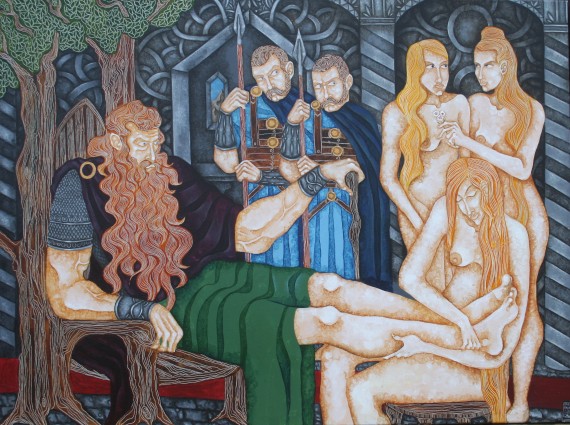
Britannia Stories explores twenty myths. While all of these are commonly associated with the British Isles, many originate from other civilisations, countries and cultures, and were adopted – and adapted – as a consequence of invasion and conquest. The two men worked closely in examining the origins of all the stories, and on determining the relevance of each to the 21st century, with Machine’s paintings influencing O’Brien’s writings, and vice versa.
Says Machine:
‘The power of the stories lies not so much as folk tales from isolated islands, but in their universal connection to ancient cultures. These dialogues with the divine, and struggles of the human spirit are timeless, and show us how myths are as important today as they ever were.’
The critic Edward Lucie-Smith says about his work:
‘Like many of the most remarkable artists of the Modern and Post Modern epoch, Joe Machine is self-taught. As it happens, being self-taught is also very much part of the English – or should I be politically correct and call it the ‘British’ – tradition. Francis Bacon, notoriously, had no professional formation as a painter. William Blake, in many ways a precursor of Joe Machine, spent six years studying at the Royal Academy, but the instruction he received seems to have bounced off him. All it did was instil in him a profound disrespect for academic ways of thinking, at least as these were understood in the England of the time.’
